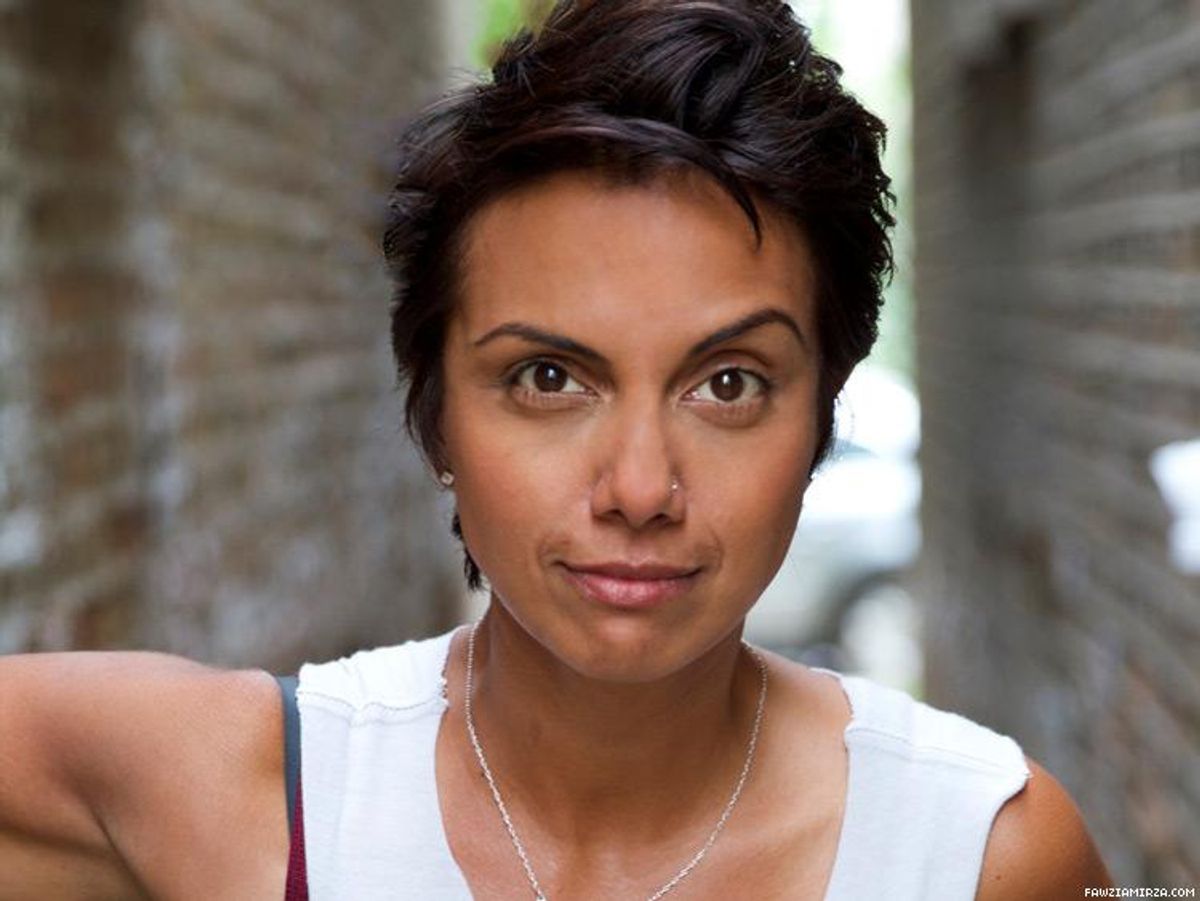Last month LGBT Americans observed National Coming Out Day, which serves as a call to be out and proud and a recognition that showcasing your identity is an empowering act that can also help change anti-LGBT attitudes. But one's religious beliefs can sometimes complicate coming out. The Advocate has interviewed people from a variety of faiths about how their religion affected their coming-out and vice versa. In the second in this series, we speak to a Muslim actress and writer.
Don't try to tell Fawzia Mirza she can't be queer and Muslim.
"I just find that deeply problematic," says the Chicago-based actress and writer, who's built an extensive stage and screen resume. "No one can tell me I am not who I am. I have tried to transcend all the misconceptions and claim this identity for myself."
Mirza, born in Canada to Pakistani parents, started dating women around the time of her father's death in 2006. Around the same time she was transitioning out of being a lawyer, having earned her degree at Chicago-Kent College of Law, and into performing, something she's loved since her teens.
When she came out to her family -- her mother, two brothers, and a sister -- they were supportive in many ways, but there was also some shock and confusion, she says. "Coming out doesn't make sense outside of a Western context," she says, adding that the idea of two women in a romantic or sexual relationship is foreign to some people's experiences. She prefers to be called "queer," she notes, although she's OK with "lesbian."
Mirza is closer to some family members than others; she has a great relationship with her mother, she says, but doesn't discuss her queer life with her. "Relationships are going to be different [from one family to another], and that's OK, not 'less than,'" she says.
Mirza describes herself as "not as ritualistically Muslim as culturally." She attends religious services at a mosque primarily when she visits her mother in Fort Wayne, Ind. She often meets with a group of Muslim queer and transgender people in Chicago, though, and usually goes to the annual retreat sponsored by the Muslim Alliance for Sexual and Gender Diversity. "It's a coming-together for all," she says of the retreat.
Many non-Muslims would not consider Islam an LGBT-friendly religion, but it's important to note that Muslims range from liberal to ultraconservative, and the alliance is among several groups working for progressive values within the faith. As for Mirza, she says, "For me, as a survival tool, I had to embrace my Muslimness. I cannot see myself as any other faith. I'm deeply protective of people of Muslim faith practicing the way they see fit."
Embracing one's Muslimness also means dealing with Islamophobia in the LGBT community and American society generally. "It seems hard for people to reconcile my Muslimness," Mirza says. "Just because [LGBT people] are marginalized does not mean we are free of any bias or stereotyping." It's her duty to fight negative misconceptions about Muslims, she says, and queer people should champion the rights of all marginalized populations.
"We cannot stop," she says. "It's not just about one negative space. It's about all of them." In continuing the fight, she says, queer people "can truly change the world."
She brought her passion for fighting for all marginalized groups to her gig emceeing the Women's March in Chicago in January. "If I can stand before all of us and represent us in this way, we're ready to have a much more vast conversation," Mirza says.
Humans have many more commonalities than differences, but that's not always recognized, she adds. "We are taught and trained not to see the connection," she says. "We are taught and trained to see the schisms and the differences."
Making the connections is the theme of one of her latest projects, the film Signature Move. She cowrote (with Lisa Donato) and stars in the movie, about the relationship between two women, one Pakistani-American, one Mexican-American, and how it affects their lives and families. Directed by Jennifer Reeder, it has been a favorite at film festivals, winning the Outfest Jury Prize for Best U.S. Narrative Feature, and several acting awards for Mirza. Bollywood icon Shabana Azmi, who starred in the groundbreaking lesbian-themed Indian film Fire in 1996, costars as the mother of Mirza's character. Mirza's other work includes appearing in the award-winning web series Her Story; co-creating, producting, and starring in the mockumentary The Muslim Trump, about a Muslim woman fathered out of wedlock by Donald Trump; and performing frequently onstage in Chicago.
"Art is a form of activism," Mirza says. "I call it 'artivism.' All of us have the power to share our narratives and stress the similarities between us instead of the differences."
Find out more about Mirza here and about Signature Move here. For the first story in this series, click here.

















































































